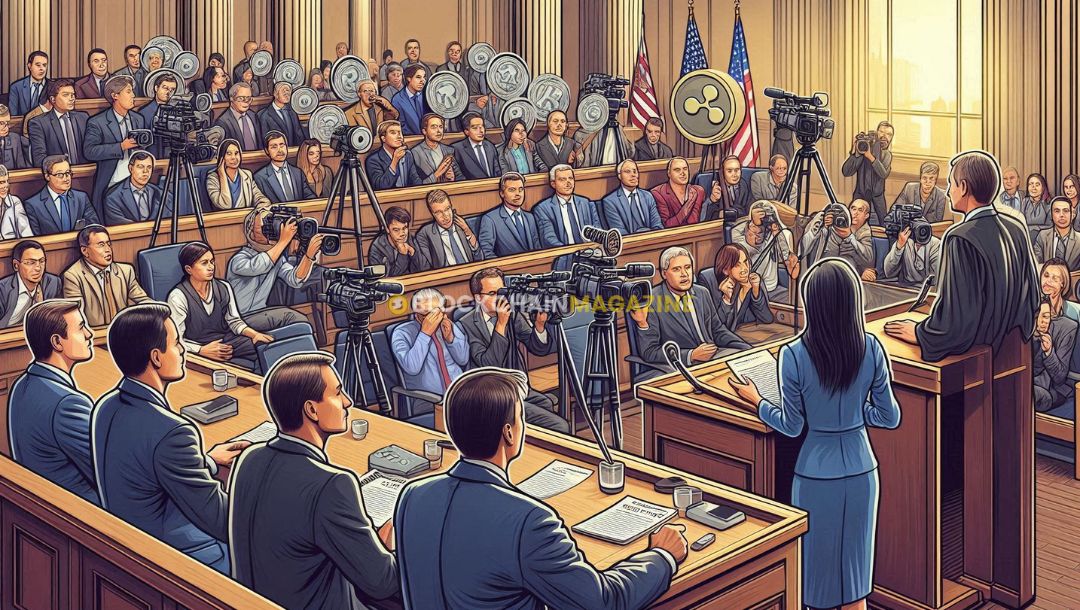Ripple’s Triumph and Its Implications on the Cryptocurrency Sphere
A year has elapsed since the pivotal ruling in the Securities and Exchange Commission’s (SEC) case against Ripple Labs, which declared that XRP, Ripple’s cryptocurrency, does not constitute a security. This verdict has reverberated through the cryptocurrency market and reshaped the regulatory landscape in the United States.
The judgment was a monumental triumph for Ripple, a blockchain-based digital payment network, establishing a crucial precedent for the classification of cryptocurrencies. The SEC had initially filed a lawsuit against Ripple in December 2020, alleging that the company had conducted an unregistered securities offering by selling XRP.
Ripple, however, contended that XRP should be regarded as a currency rather than a security. After a protracted legal struggle, on July 13, 2023, the court ultimately ruled in Ripple’s favor.
Consequences for the Cryptocurrency Industry
The court’s declaration that XRP is not a security has had extensive ramifications for the cryptocurrency sector. Primarily, it provided much-needed regulatory clarity. Cryptocurrencies have often operated in a nebulous area, with regulatory bodies grappling to classify and govern them properly.
By determining that XRP is not a security, the court set a precedent that could influence the classification and regulation of other cryptocurrencies. This decision also positively impacted XRP’s market value. According to TradingView data, XRP’s price surged nearly 6% following the ruling.
Stuart Alderoty, Ripple’s chief legal officer, articulated his perspective on the X platform, emphasizing the importance of Judge Torres’ decision. He noted that this ruling has paved the way for other cases, including the recent Binance case, to acknowledge the SEC’s overreach and deviation from legal principles under Chairman Gensler’s leadership. Although the courts have provided a necessary check on the SEC’s actions, Alderoty stressed that relying on protracted litigation to determine the status of each token on a case-by-case basis is an unsatisfactory solution.
Read more: SEC Rebukes Ripple’s Plea for Reduced Penalty Amid Ongoing Legal Clash
Ongoing Regulatory Developments and Ripple’s Advancements
Over the past year, the case has continued to evolve, with Ripple and the SEC engaging in further legal disputes and negotiations. The SEC has not entirely relented, and the regulatory environment remains intricate and challenging. Nevertheless, Ripple has used this period to fortify its legal arguments and consolidate its market position.
The lawsuit has witnessed numerous developments and legal skirmishes over the years. A significant aspect of the case is the discussion around the Howey test, which determines whether a transaction qualifies as an “investment contract” under US law. The SEC maintains that XRP meets the criteria of the Howey test, while Ripple disputes this assertion.
Looking Forward
As Ripple continues to navigate its legal battles, the implications of this landmark victory remain significant for the broader cryptocurrency market. The clarity provided by the court’s decision has offered a framework for the classification and regulation of digital assets, potentially shaping the future of cryptocurrency regulation in the United States and beyond.

 Bitcoin
Bitcoin  Ethereum
Ethereum  Tether
Tether  XRP
XRP  Solana
Solana  Dogecoin
Dogecoin  USDC
USDC  Lido Staked Ether
Lido Staked Ether  Cardano
Cardano  TRON
TRON  Avalanche
Avalanche  Toncoin
Toncoin  Wrapped stETH
Wrapped stETH  Chainlink
Chainlink  Shiba Inu
Shiba Inu  Wrapped Bitcoin
Wrapped Bitcoin  Sui
Sui  Hedera
Hedera  Polkadot
Polkadot  Stellar
Stellar  WETH
WETH  Hyperliquid
Hyperliquid  Bitcoin Cash
Bitcoin Cash  LEO Token
LEO Token  Uniswap
Uniswap  Pepe
Pepe  Litecoin
Litecoin  Wrapped eETH
Wrapped eETH  NEAR Protocol
NEAR Protocol  Ethena USDe
Ethena USDe  USDS
USDS  Aave
Aave  Aptos
Aptos  Internet Computer
Internet Computer  Mantle
Mantle  POL (ex-MATIC)
POL (ex-MATIC)  Cronos
Cronos  Ethereum Classic
Ethereum Classic  Render
Render  MANTRA
MANTRA  Monero
Monero  WhiteBIT Coin
WhiteBIT Coin  Virtuals Protocol
Virtuals Protocol  Artificial Superintelligence Alliance
Artificial Superintelligence Alliance  Bittensor
Bittensor  Dai
Dai  Arbitrum
Arbitrum 



